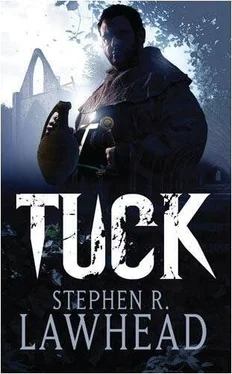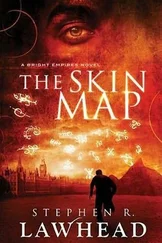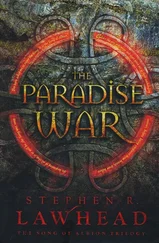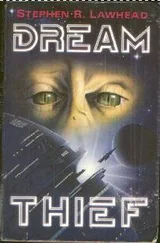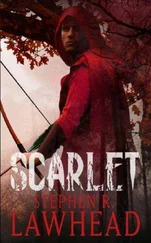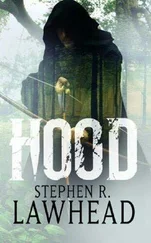Stephen Lawhead - Tuck
Здесь есть возможность читать онлайн «Stephen Lawhead - Tuck» весь текст электронной книги совершенно бесплатно (целиком полную версию без сокращений). В некоторых случаях можно слушать аудио, скачать через торрент в формате fb2 и присутствует краткое содержание. Жанр: Фэнтези, на английском языке. Описание произведения, (предисловие) а так же отзывы посетителей доступны на портале библиотеки ЛибКат.
- Название:Tuck
- Автор:
- Жанр:
- Год:неизвестен
- ISBN:нет данных
- Рейтинг книги:4 / 5. Голосов: 1
-
Избранное:Добавить в избранное
- Отзывы:
-
Ваша оценка:
- 80
- 1
- 2
- 3
- 4
- 5
Tuck: краткое содержание, описание и аннотация
Предлагаем к чтению аннотацию, описание, краткое содержание или предисловие (зависит от того, что написал сам автор книги «Tuck»). Если вы не нашли необходимую информацию о книге — напишите в комментариях, мы постараемся отыскать её.
Tuck — читать онлайн бесплатно полную книгу (весь текст) целиком
Ниже представлен текст книги, разбитый по страницам. Система сохранения места последней прочитанной страницы, позволяет с удобством читать онлайн бесплатно книгу «Tuck», без необходимости каждый раз заново искать на чём Вы остановились. Поставьте закладку, и сможете в любой момент перейти на страницу, на которой закончили чтение.
Интервал:
Закладка:
In this way, Tuck had collected a tidy heap of tittle-tattle and, after sifting everything well and wisely, it came to this: Hugh d'Avranches had come to England with the invading forces of the Duke of Normandy-William the Conqueror to some,Willy Bastard to others, father of the present King of England, William Rufus. And although Hugh did not actually fight at Hastings against Good King Harold, the Norman nobleman was nevertheless granted generous swathes of land in the north of England as a reward for his loyalty and support. Why was this? He had ships.
It was said that if not for Hugh d'Avranches' ships, the invasion of England would never have taken place. The master of upwards of sixty seaworthy vessels, he lent them to Duke William to carry the Ffreinc army across the Narrow Sea to Britain's green and pleasant shores, thereby earning himself an earldom. Most of the Cymry knew Earl Hugh as a fierce adversary well deserving of his wolfish nickname; more extreme views considered him little more than a boot-licking toady to his bloat-gut royal master, and called him Hw Fras, or Hugh the Fat. In either case, the Cymry of the region had long since come to know and loathe him as a ruler who made life a torrent of misery for all who lived within his reach, and a very long reach it was.
From his sprawling fortress at Caer Cestre on the northern border between England and Wales, Earl Hugh harrowed the land: raiding, thieving, spoiling, feuding, burning, and wreaking whatever havoc he might on any and all beyond the borders of his realm. Forever a thorn in the side of the local Cymry, he pricked them painfully whenever he got the chance.
It went without saying that it fell to King Gruffydd of Gwynedd to make a stand against this rapacious tyrant. Time and again Gruffydd's warriors and the earl's-or those of the earl's blood-lusting kinsman, Robert of Rhuddlan-tangled and fought. Some times the Cymry bloodied the Norman noses, but more often it went the other way. On one disastrous day, however, King Gruffydd ap Cynan had been captured. Earl Robert had bound his prize in chains and hauled him to Caer Cestre, where Gruffydd was cast into Fat Hugh's hostage pit. That was eight years ago, and he was still there, kept alive at Hugh's pleasure to torment and torture as whim moved him. It was thought that the Welsh king would rot in captivity. Hugh had no intention of releasing him and had refused to set either a ransom or a day of execution, but the earl did allow the Welsh king's kinsmen to pay their respects on high holy days, when a selected few were admitted to the danksome keep with carefully inspected parcels of food, clothing, candles, and other necessaries for their captive king.
The earl's fortress at Caer Cestre was a squat square lump of ruddy stone with thick walls and towers at each corner and over the gate, and the whole surrounded by a swampy, stinking ditch. It had been constructed on the remains of a stout Saxon stronghold which was itself built on foundations the Romans had erected on the banks of the River Dee. The town was also walled, and those walls made of stone the Roman masons cut from the red cliffs along the river. The caer, it was said, could not be conquered by force.
These and other things Tuck learned and reported it all to Bran.
"He likes his whoring and hunting, our Hugh," he reported. They were sitting in the courtyard of Llewelyn's house, sharing a jug of cool brown ale. A golden afternoon sun was slanting down, warming the little yard agreeably, and the air was soft and drowsy with the buzz of bees from the hives on the other side of the wall. "They say he likes his mistresses better than his money box, his falcons better than his mistresses, and his hounds better than his falcons."
"Thinks himself a mighty hunter, does he?" mused Bran with his nose in the jar. He took a sip and passed it to Tuck.
"That he does," the friar affirmed. "He spends more on his dogs and birds than he does on himself-and he's never been known to spare a penny there, either."
"Does he owe anyone money?" wondered Bran.
"That I cannot say," Tuck told him. "But it seems he spends it as fast as he gets it. Musicians, jugglers, horses, hounds, clothes from Spain and Italy, wine from France-he demands and gets the best of whatever he wants. The way people talk, a fella'd think Fat Hugh was one enormous appetite got up in satin trousers."
Bran chuckled. He took back the jar and raised it. "A man who is slave to his appetites," he said, taking another drink, "has a brute for a master."
"Aye, truly. That he has," the friar agreed cheerfully. "Here now! Save a bit o' that for me!"
Bran passed the jar to the friar, who upended it and drained it in a gulp, froth pouring down his chin, which he wiped on a ready sleeve.
When Tuck handed the empty jar back, Bran peered inside and declared, somewhat cryptically, "It is the master we shall woo, not the slave."
What he meant by this, Tuck was not to discover for several days. But Bran set himself to preparing his plan and acquiring the goods he needed, and also pressed his two young cousins, Brocmael and Ifor, into his service. He spent an entire day instructing the pair in how to comport themselves as members of his company. Of course, Tuck was given a prime part in the grand scheme as well, so the bowlegged little friar was arrayed accordingly in some of Bishop Hywel Hen's best Holy Day vestments borrowed for the purpose.
At last, Bran declared himself satisfied with all his preparations. The company gathered in Llewelyn's hall to eat and drink and partake of their host's hospitality before the fire-bright hearth. Llewelyn's wife and her maids tended table, and two men from the tribe regaled the visitors and their host with song, playing music on the harp and pipes while Llewelyn's daughters danced with each other and anyone else they could coax from their places at the board. Some of the noblemen had brought their families, too, swelling the ranks of the gathering and making the company's last night a glad and festive time.
The next morning, after breaking fast on a little bread soaked in milk, Bran repeated his instructions to Llewelyn, Trahaern, and Cynwrig. Then, mounting their horses, the four set off for the docks in search of a boat heading north. Caer Cestre sat happily on the Afon Dyfrdwy, which Tuck knew as the River Dee. All told, Earl Hugh's castle was no great distance-it seemed to Tuck that they could have reached it easily in three easy days of riding-but Bran did not wish to slope unnoticed into town like a fox slinking into the dove cote. He would have it no other way but that they would arrive by ship and make as big an occasion of their landing as could be. When Bran came to Caer Cestre, he wanted everyone from the stable-hand to the seneschal to know it.
CHAPTER 13
Lord love us," said Tuck, a little breathless from his ride to the caer, "It's an Iberian trading vessel on its way to Caer Cestre. The ship's master has agreed to take us on board, but they are leaving on the tide flow."
"Tuck, my friend, I do believe things are going our way at last," declared Bran happily. "Fetch young Ifor and Brocmael. I'll give Llewelyn our regards and meet you at the dock. Just you get yourself on board and make sure they don't leave without us."
The travelling party arrived wharfside just as the tide was beginning to turn and got themselves to the ship with little time to spare. As the last horse was brought aboard and secured under the keen gaze of the ship's master-a short, swarthy man with a face burned by wind and sun until it was creased and brown as Spanish leather-Captain Armando gave the order to up anchor and push away from the dock. A good-natured fellow, Armando contented himself with the money Bran paid him for their passage, asking no questions and treating his passengers like the nobility they purported to be. The ship itself was broad abeam and shallow drafted, built for coasting and river travel. It carried a cargo of olive oil and wine in an assortment of barrels and casks; bags of dried beans and black pepper, rolls of copper and tin, and jars of coloured glass. And for the noblemen of England and France: swords, daggers, and helmets of good Spanish steel; and also rich garments of the finest cloth, including silks and satins from the Andalus, and wool from the famous Spanish merinos. The four travellers ate well on board, and their quarters, though cramped-"a body cannot turn around for tripping over his own feet," complained Tuck-were nevertheless clean enough. At all events it was but a short voyage and easily endured. Mostly, the passengers just leaned on the rail and watched shoreline and riverbank slide slowly by, now and again so close they could almost snatch leaves from the passing branches.
Читать дальшеИнтервал:
Закладка:
Похожие книги на «Tuck»
Представляем Вашему вниманию похожие книги на «Tuck» списком для выбора. Мы отобрали схожую по названию и смыслу литературу в надежде предоставить читателям больше вариантов отыскать новые, интересные, ещё непрочитанные произведения.
Обсуждение, отзывы о книге «Tuck» и просто собственные мнения читателей. Оставьте ваши комментарии, напишите, что Вы думаете о произведении, его смысле или главных героях. Укажите что конкретно понравилось, а что нет, и почему Вы так считаете.
